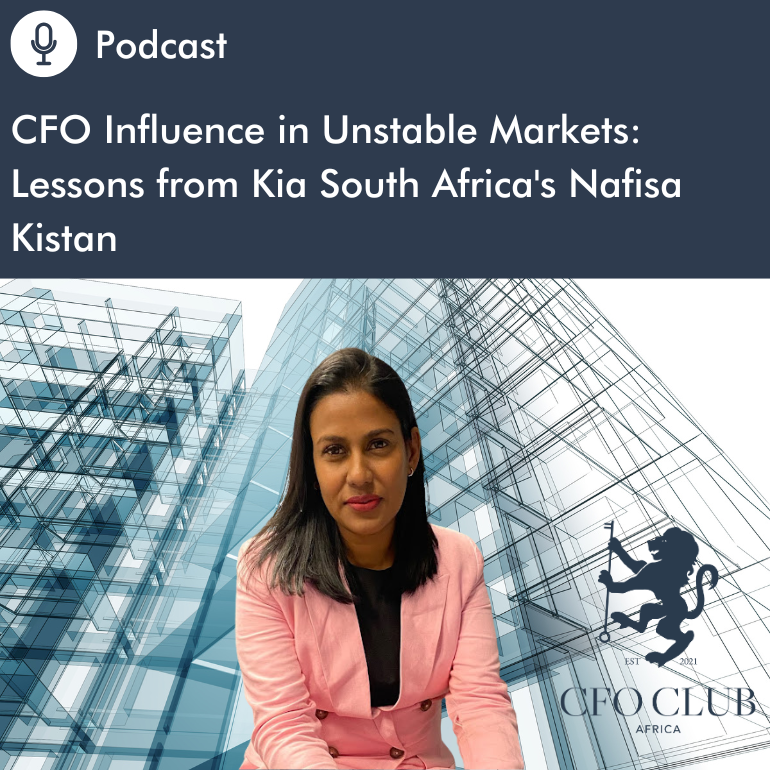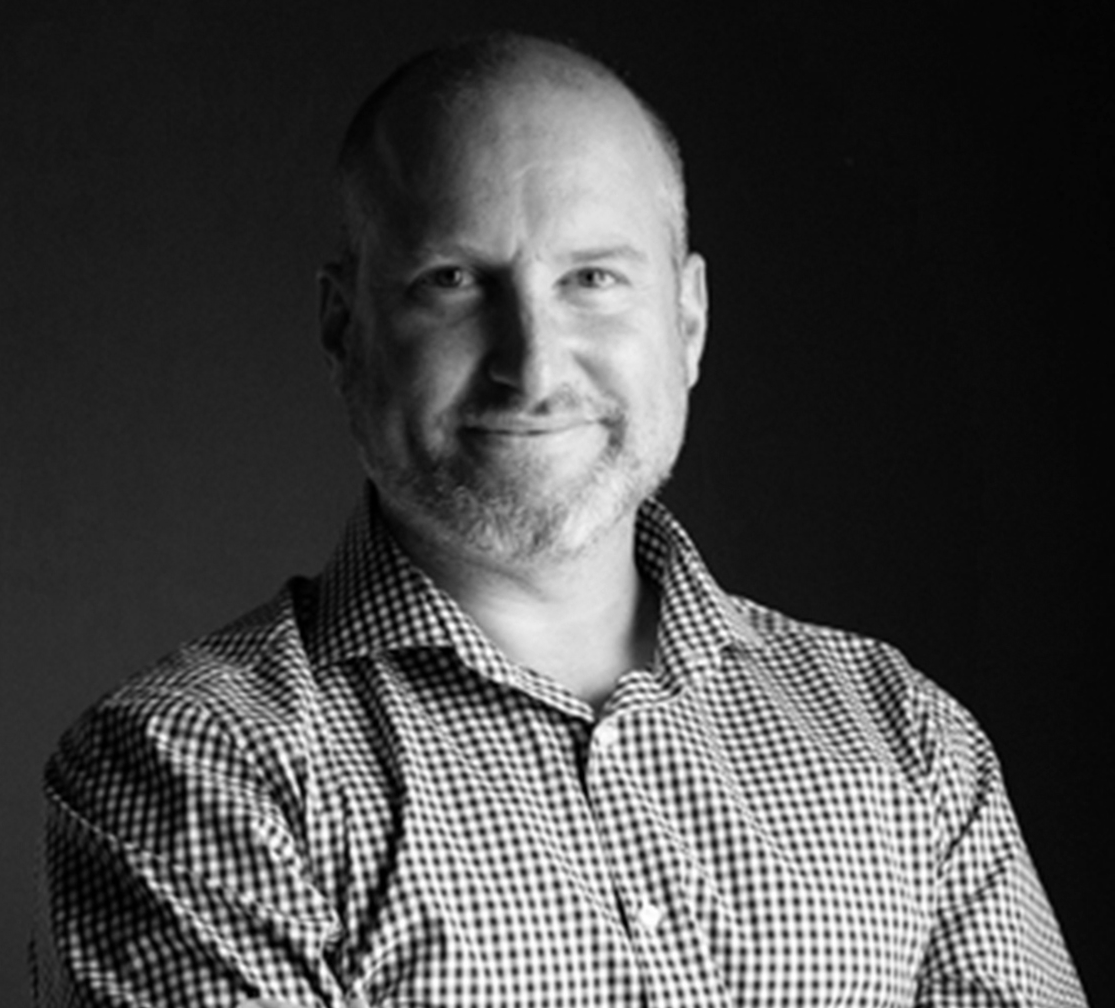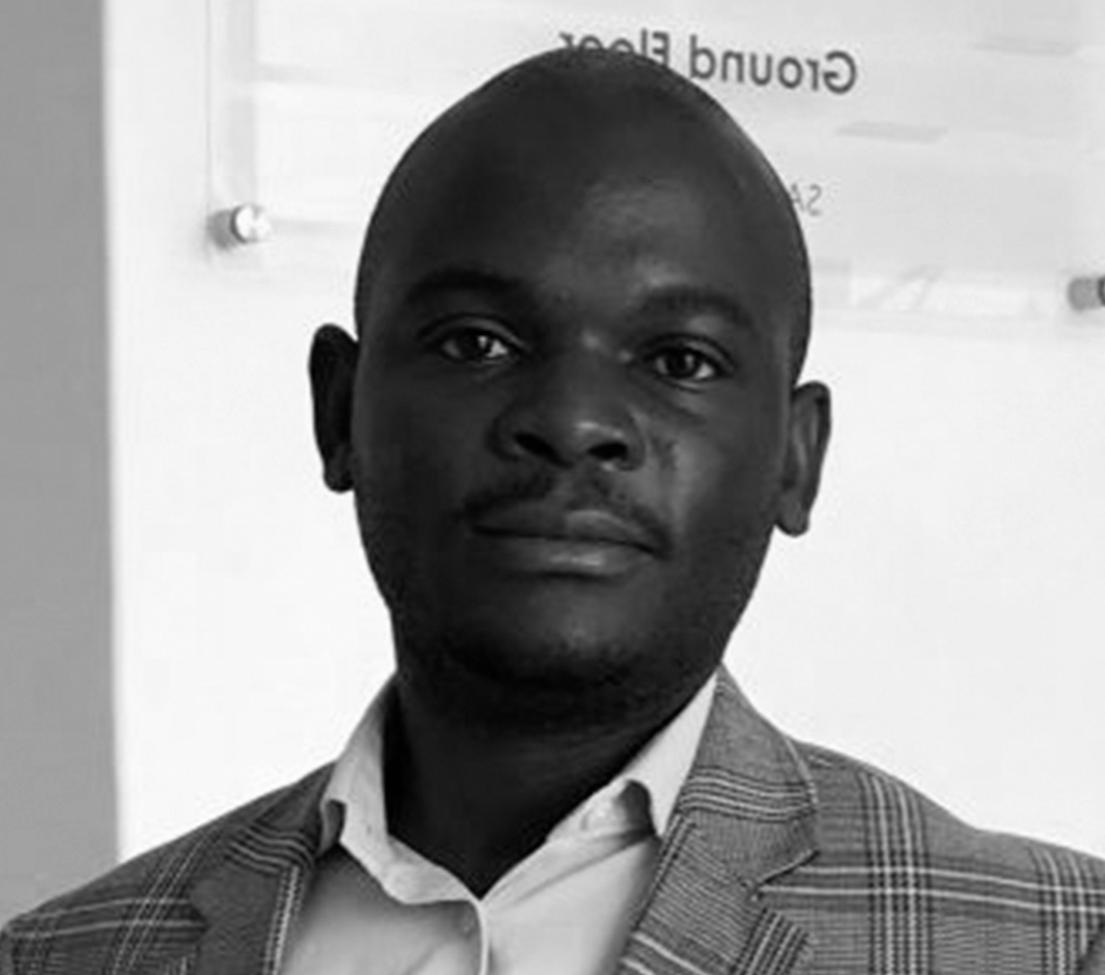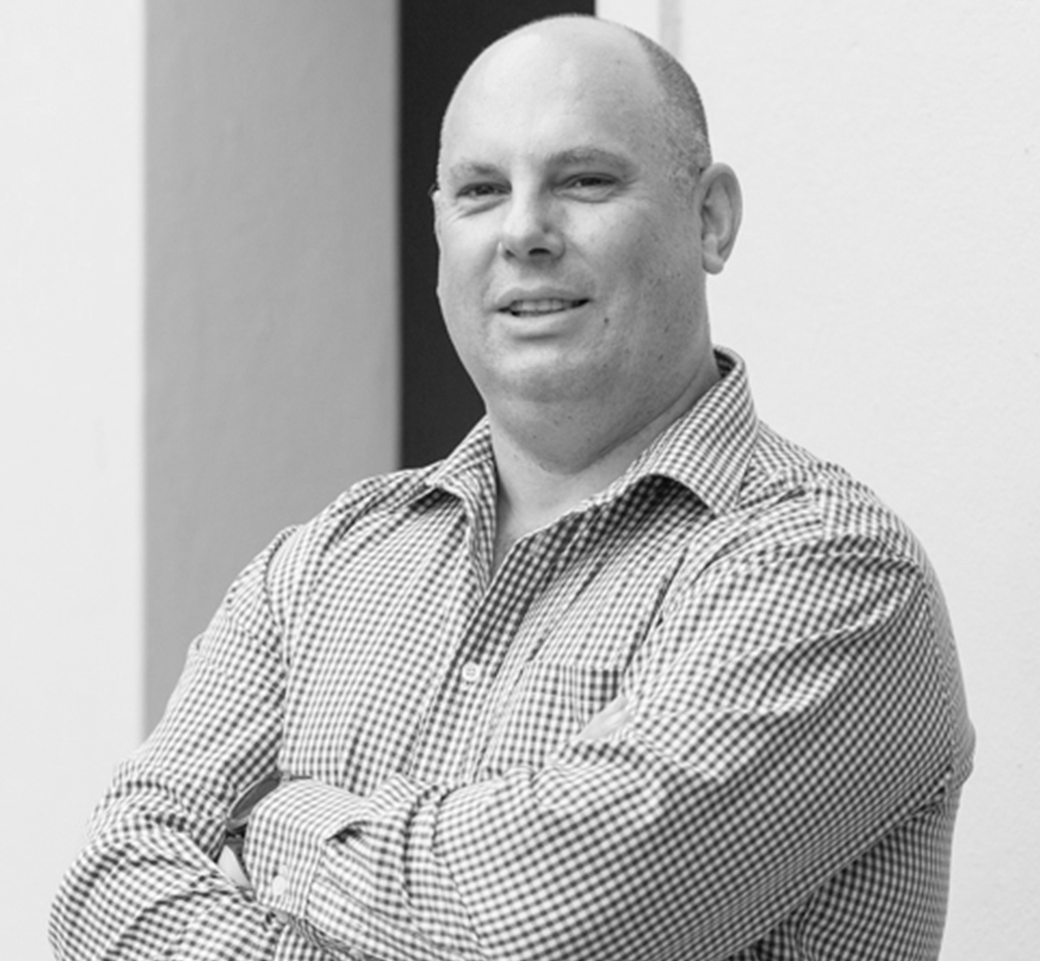When Nafisa Kistan took the CFO seat at Kia South Africa, she entered one of the most disrupted industries in the world. With decades of finance leadership behind her, Kistan shares what it takes to lead with strategic influence, navigate operational complexity, and make board-level decisions in an environment shaped by volatility, uncertainty, and change.
Proving Value in High-Pressure Environments
Kistan stepped into the CFO role with a clear mandate: drive value, not just manage compliance. She emphasized that proving yourself isn’t about loud declarations, but consistent, strategic execution. “You don’t need to prove you belong when your track record already shows it. You earn your seat by focusing on outcomes.”
Her method? Combine deep listening with decisive leadership. She draws on years of operational experience to move beyond the “no” stereotype in finance and build partnerships across the business. “It’s not about blocking spend, it’s about making smart trade-offs that generate returns.”
This approach is echoed in case studies such as Microsoft’s finance transformation under CFO Amy Hood. Hood redefined the role of finance as a collaborative partner across the business, pushing strategic agendas while maintaining financial discipline.
Breadth Before Title: The Case for Operational Finance
Titles don’t always reflect capability. Kistan points out that many CFOs-in-waiting operate without the formal title for years. “We need to stop assuming tenure or qualification alone equals readiness. The real differentiator is breadth and depth across business lines.”
She argues that exposure to cross-functional and operational finance is essential. “If you’ve never sat with logistics, sales, or supply chain, your view is too narrow. That limits your board impact.”
This is supported by research from EY, which found that CFOs with cross-functional experience are 35% more likely to be seen as strategic partners by their boards.
Forecasting Beyond the Budget
In an import-driven business like Kia South Africa, traditional budgeting loses relevance fast. Kistan leads through constant forecasting, blending data with institutional knowledge. “Budgets give you a roadmap. Forecasting keeps you on the road when the terrain changes.”
With volatile currencies, regulatory shifts, and evolving customer demand, agility in finance has become non-negotiable. “You need tools and people who can run new scenarios at speed. The board doesn’t wait for month-end.”
Global players like Unilever and Procter & Gamble have moved to rolling forecasts and scenario-based planning. These models increase responsiveness and decision-making speed, key in fast-changing environments.
Leadership Beyond the Numbers
Kistan’s background as a lecturer and mentor sharpens her communication and strategic alignment skills. Teaching technical content forces clarity. “You only truly understand something when you can explain it simply. That skill is critical in boardrooms.”
She also challenges the belief that there’s only one path to CFO. Her own journey included part-time study and early work experience, a path she believes builds resilience. “You don’t need the perfect route. You need consistency, perspective, and the ability to translate financial insight into business action.”
Deloitte’s CFO Signals survey consistently finds that the most effective CFOs combine technical mastery with communication and leadership agility. Kistan’s path mirrors this integrated model.
Ethics, Not Just Economics
Asked about ethical leadership, Kistan underscored the importance of organizational culture. “Ethical strength must be led from the top. In the best organizations, you don’t have to fight to do the right thing, it’s expected.”
She acknowledged that tough calls often arise not from ethical breaches but from decisions that carry real human cost, like restructures. The key is balancing short-term actions with long-term sustainability. “If you lead with clarity and purpose, your team will follow, even in the hard moments.”
This perspective aligns with the leadership frameworks seen at companies like Patagonia and Salesforce, where purpose-driven finance leadership is a core expectation of the executive team.
In Closing
Nafisa Kistan’s story is a case study in what modern CFOs must embody: cross-functional understanding, real-time decision-making, ethical leadership, and the ability to speak fluently between operations and the board. In a world that demands resilience, she leads with clarity.
Become a Chartered Chief Financial Officer with CIBA and we will show you how to turn operational experience into board-level influence.
Transcript:
Leana van der Merwe:
Welcome to the CFO Club podcast. I’m Leana van der Merwe, and today we’re joined by Nafisa Kistan, CFO of Kia South Africa. Nafisa’s career spans roles at Toyota, Sandvik, and Aving. She’s a CGMA, holds an executive MBA from Henley Business School, and has lectured and spoken on finance leadership across the country.
Nafisa, welcome to the CFO Club.
Nafisa Kistan:
Thank you, Leana. It’s a pleasure to be here.
Leana:
You recently stepped into the CFO role at Kia after years in operational and regional finance. How do you balance bringing a fresh perspective with the pressure to prove yourself, especially in a male-dominated industry?
Nafisa:
It’s a balance of respecting the experience in the room while bringing your own insights. I’ve always believed in the value of listening to understand, not just to respond. Confidence, collaboration, and staying true to your expertise matter more than trying to prove you belong. By the time you step into a role like this, you’ve already earned your place.
Leana:
That ties in with something we’ve written about recently at the CFO Club—building on the value left by previous CFOs rather than trying to start from scratch. You also mentioned earlier, “Old brooms know the corners, but new brooms sweep clean.” That really resonates.
Let’s talk titles versus impact. You’ve held leadership roles before becoming a CFO. Are organizations still slow to recognize financial leadership, especially when it comes from non-traditional paths?
Nafisa:
There are definitely cases where leaders are overlooked. Some organizations don’t recognize leadership until someone gets the title, even if they’ve been doing the work for years. On the other hand, there’s also the risk of promoting people too quickly based on tenure or qualifications, without the breadth and depth of experience needed.
The key is exposure. Leaders need to ensure that future CFOs are given real opportunities to grow—not just on paper but in practice. And yes, women and professionals who don’t follow the audit-to-CFO path still face slower recognition in some environments.
Leana:
Agreed. Emotional maturity and operational experience count for a lot. It’s not just about technical skills.
You’ve also lectured and mentored many professionals. Has teaching made you a better CFO?
Nafisa:
Absolutely. Teaching forces you to simplify complex ideas and explain them clearly. It sharpens your communication and deepens your understanding. It also builds confidence—especially when speaking off the cuff, which happens often in executive roles.
Leana:
What’s one outdated idea you think young finance professionals are still being told?
Nafisa:
That you must follow the traditional full-time study path to succeed. I worked and studied at the same time. It wasn’t easy, but the practical experience helped me more than I expected. Getting exposure early on, even part-time or through internships, is invaluable.
Leana:
Let’s talk about the automotive industry. It’s one of the most disrupted right now—currency volatility, EV shifts, supply chain issues. Is traditional budgeting still relevant?
Nafisa:
Budgets are still useful as roadmaps. The assumptions may change, but the process gives structure to your resource allocation and investment decisions. Forecasting is what’s become critical—quick, data-driven, and responsive forecasting. We also rely on institutional knowledge. Automotive cycles repeat. The challenge is not to panic but to adjust quickly using data and insight.
Leana:
Let’s talk ethics. Have you ever had to challenge a decision not because it wasn’t financially sound, but because it wasn’t ethically right?
Nafisa:
Fortunately, I’ve worked in organizations where ethics are led from the top. The culture has always emphasized doing the right thing. The hardest calls haven’t been about ethics but about tough financial decisions like restructures. Those are difficult but necessary to preserve the long-term health of the business.
Leana:
Final question. You’re in the automotive industry and clearly love cars. What’s your favorite?
Nafisa:
Right now, it’s the Kia Carnival Hybrid. It’s spacious, efficient, and fits my lifestyle. I’ve also got my eye on the EV9 and EV3. I fully immerse myself in the brands I work for—and I’m genuinely excited about what Kia is doing.
Leana:
Nafisa, thank you for your insights and for joining us today.
Nafisa:
Thank you for having me.
Related Posts
5: Lorien Gamaroff
CEO: Centbee Reinvention of the sound money concept. South Africa’s foremost blockchain expert, Lorien Gamaroff, provides insight to blockchain technologies and their benefits. CIARAN RYAN: This is CFO Talks and today we are really excited to be joined by Lorien Gamaroff, CEO of Centbee, a cryptocurrency payment company. He’s also the chief ex
8: Bryan Dorfan
CEO & CFO: Alyak Investments From CFO to business owner: Drawing on his financial and forensic experience, Bryan Dorfan’s new consultancy assists businesses to improve their profitability. CIARAN RYAN: This is CFO Talks and today we are talking with Bryan Dorfan, who’s chief executive officer and chief financial officer of Alyak Investment
4: Talifhani Khubana
CFO: Pan South African Language Board The Pan South African Language Board was established by an Act of Parliament in 1995, it falls under the Department of Arts and Culture and its purpose is to promote multilingualism in South Africa, where we have eleven official languages. CIARAN RYAN: This is CFO Talks and […]
12: Pieter de Wit
Chief Financial Officer: Afrimat Don’t waste a good crisis. ‘We are a very entrepreneurial-type culture in Afrimat and we always look for opportunities in the crisis.’ CIARAN RYAN: This is CFO Talks and today we’re joined by Pieter de Wit, chief financial officer at Afrimat, a construction materials and mining company listed on […]





